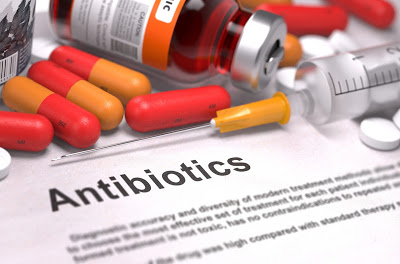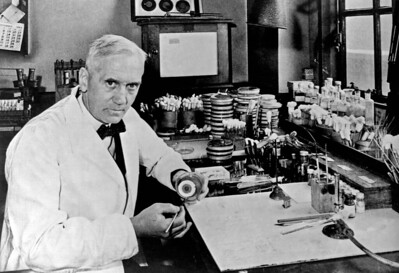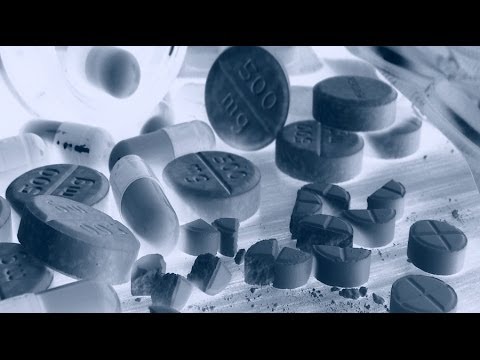SHARES

“My daughter was very sick. She vomited all that she drank and ate. I was so worried and we went to see a doctor. To my surprise, the doctor refused to give antibiotics! He explained so much about antibiotic resistance. But, I must do something for my girl. Actually, I remember there’s some leftover antibiotics at home. That should do the trick!” Mrs Lim is concerned about her child’s health. Nonetheless, her decision can be very dangerous!
What is Antibiotic Resistance?
Bacteria are among the first life forms that appear on Earth, long before humans exist. There are trillions of species of bacteria which are constantly competing with one another and even with other life forms for survival. In this context, they develop countless weapons against one another as well as a unique defence system.
Then, about billions of years later, humans join the game of survival. We finally learn their secret of “bacteria-killing weapon” (antibiotic) just not long ago – about 70 years. First time in history, human beings are able to cure bacteria infection so easily. This miracle makes us dare to do surgery, implant prostheses and even transplant body organs.
However, our improper use of these secret weapons gives bacteria plenty of chance to evolve and strengthen their defence system. Now, we are facing a worldwide army of bacteria which are resistant to some or almost all of our antibiotics. In short, we will lose the war pretty soon if we don’t value our secret weapons and use them appropriately.
How does Antibiotic Resistance Affect Me?
When our secret weapons (antibiotics) become useless, any bacterial infection can become very serious and hard to heal. A small injury in your hand can become infected and spread through your entire arm. You may lose an entire arm to bacteria infection. Likewise, bacterial infection of the lungs and guts can take a long time to recover or never. If bacteria invade into your bloodstream, they spread to all your organs. This is called “blood poisoning” or sepsis. Most people will not survive, especially young children, elderly and people with a weaker immune system. Also, surgery will become almost impossible because most people will die from infection of the surgical wound.
What should I do to Prevent Antibiotic Resistance and Protect Myself?
Antibiotic resistance is a global issue that affects every human being. Hence, everyone is responsible for preventing the spread of antibiotic resistance.
1. Only Use Antibiotics When Needed
Question your doctor when antibiotics are prescribed. Then, discuss with your doctor on antibiotic resistance. Most common cold and diarrhoea are caused by viruses instead of bacteria. Hence, antibiotics are not needed and you will recover in 1-2 weeks. Using antibiotics unnecessarily will give your body bacteria extra chances to develop resistance. For that reason, do not demand for an antibiotic if your doctor says you don’t need it. In this context, discuss with your doctor on vaccination to prevent viral infections instead.
2. Proper Use of Antibiotics
Follow strictly your doctor’s advice on how to take antibiotics. Make sure you take the correct number of pills (dosage) for the correct number of days. You should not have or keep any leftover antibiotic. This is because taking less than enough dosage of the antibiotic will fail to kill bacteria effectively. These bacteria that survive will have a higher chance of developing new defence mechanism against your antibiotic.
3. Good Personal Hygiene to Prevent Infection
Prevention is better than cure. Always protect yourself from infection by keeping yourself clean. Wash your hands before and after food preparation, eating, using the toilet, and close contact with sick people. In addition, cover your nose and mouth with a handkerchief or mask when sneezing and coughing. Besides, practice safe sex to protect yourself from sexually transmitted disease.
4. Prepare Food Hygienically
Use of antibiotics in farming and agriculture can breed resistant bacteria. These bacteria can be passed from farm animal to humans through direct contact or consumption of farm products like eggs, meat, seafood, fruits etc. Therefore, choose food sources that do not use antibiotic inappropriately. On top of that, prepare your food by following WHO’s Five Keys to Safer Food:
i. Keep Clean
Wash your hands, countertops, cutting boards, and utensils with soapy water. Always rinse fruits and vegetables under clear running water.
ii. Separate Raw and Cooked Food
Always keep raw food and their germs away from cooked food. For example, use separate bags during grocery shopping; separate chopping board; and separate compartments in fridge.
iii. Cook thoroughly
High temperature kills the germs in food. Make sure the inner portion of your meat is well-cooked. Also, heat up your leftover food thoroughly.
iv. Keep food at safe temperatures
Bacteria multiply rapidly at room temperature. Keep them in fridge below 4 degree Celsius. When thawing, keep them in chiller, cold water or microwave instead of counter at room temperature.
v. Use safe water
Water can be contaminated by germs from animal wastes. Always use clean and safe tap water. Unless the water is portable, filter and boil water before consuming.

Sir Alexander Fleming, (6 August 1881 – 11 March 1955) was a Scottish biologist, pharmacologist and botanist who discovered Penicillin. (Photo by Universal History Archive/UIG via Getty Images)
Conclusion
“The thoughtless person playing with penicillin treatment is morally responsible for the death of the man who succumbs to infection with penicillin-resistant organism. – Sir Alexander Fleming”. The discoverer of the first antibiotic had long foreseen the consequence of antibiotic misuse. His solemn warning should remind us always of our tiny existence in nature and to be thoughtful in our every action.
Find a GP/Family Doctor in Malaysia, on GetDoc
Find a GP/Family Doctor in Singapore, on GetDoc
References
- About antibiotic resistance [CDC]. Centers for Disease Control and Prevention, National Center for Emerging and Zoonotic Infectious Diseases, Division of Healthcare Quality Promotion. U.S. Department of Health & Human Services. 2019. [Available from: https://www.cdc.gov/drugresistance/about.html; last updated on 2019 Nov 4; last accessed on 2019 Jan 10]
- Antibiotic resistance [WHO]. World Health Organization. 2019. [Available from: https://www.cdc.gov/drugresistance/about.html; last updated on 2018 Feb 5; last accessed on 2019 Jan 10]
by Chang Xian
View all articles by Chang Xian.






